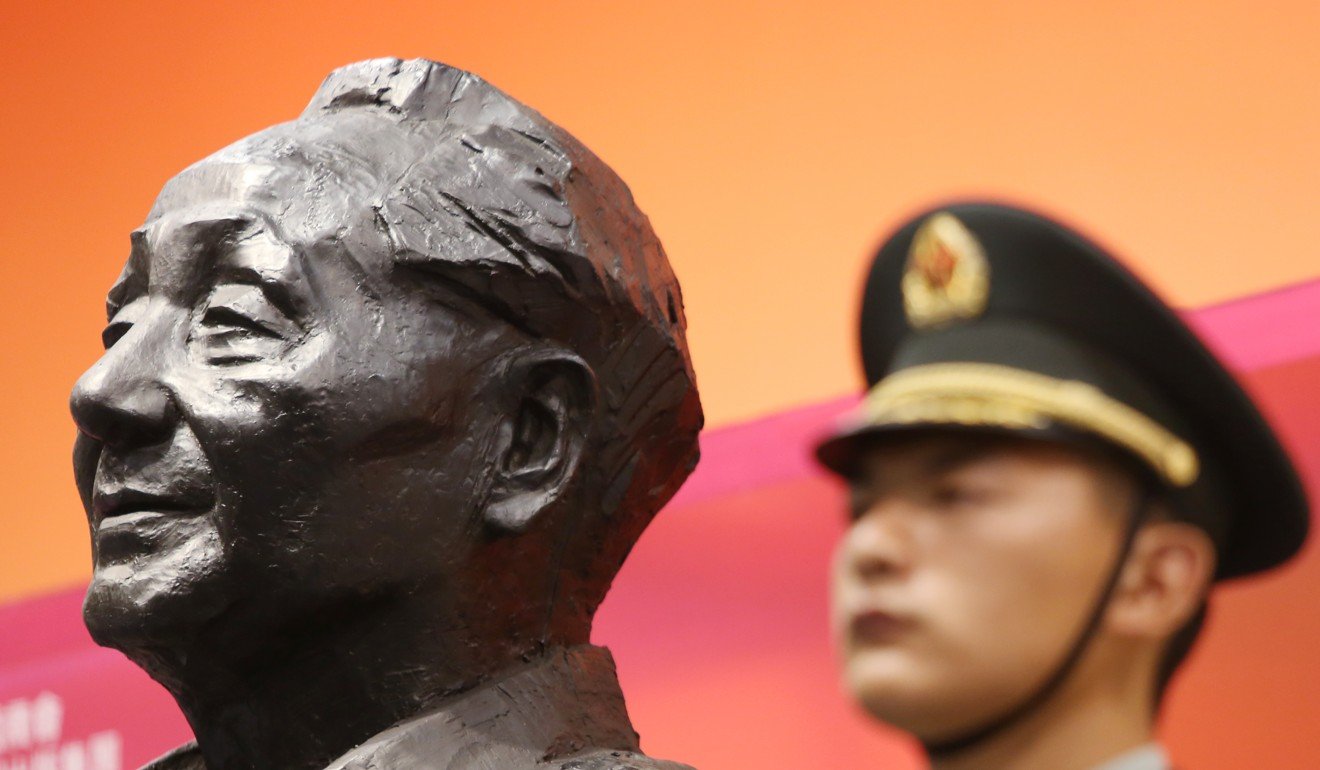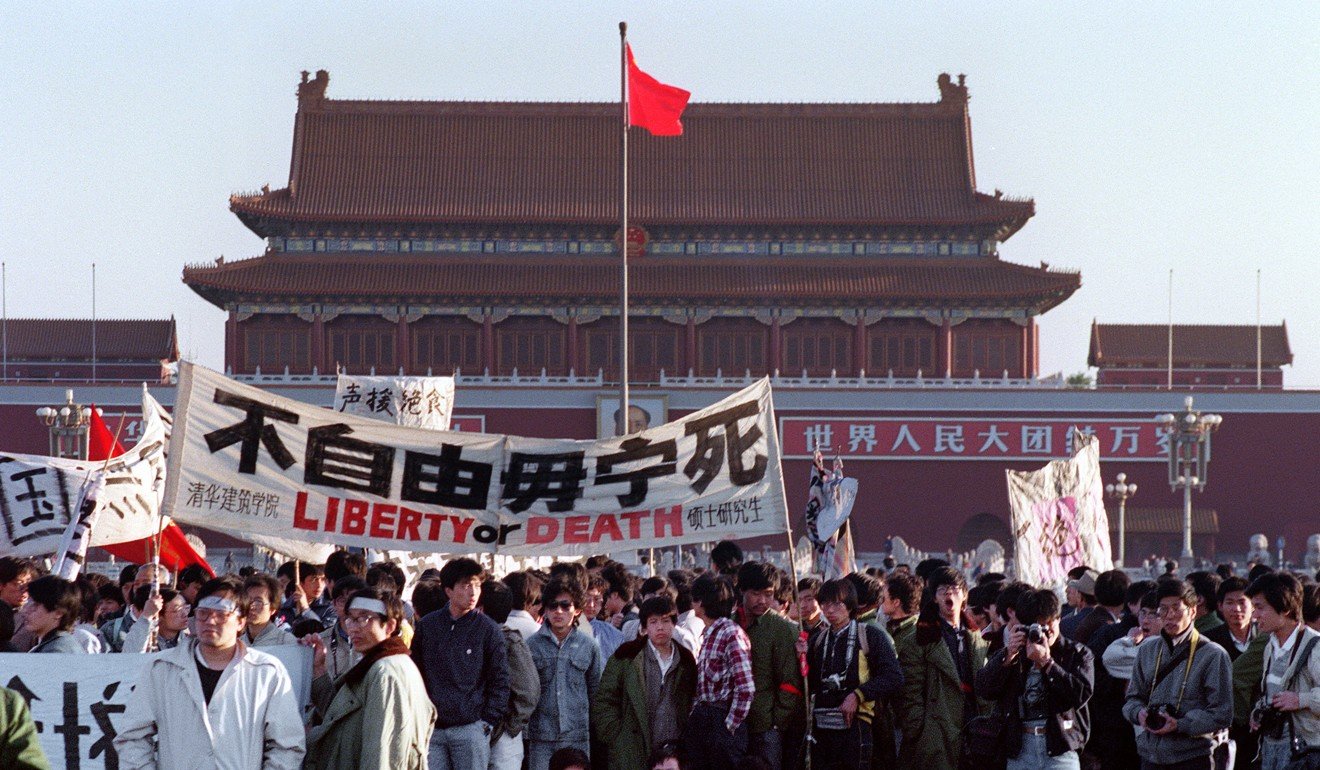Why Tiananmen Square’s real legacy may be Communist Party unity and the success of Deng Xiaoping’s economic reforms
- After June 4, the purge of liberals who wanted political reform may have given Deng Xiaoping the space he needed to keep economic reforms going when the communist bloc collapsed

Sometime around June 4, 1989, rumours circulated that Deng Xiaoping had said that 200 lives were a small price for China to pay for 20 years of stability. While China clearly did not gain 20 years of stability, the case can be made that, in retrospect, by allowing the purge of the entire liberal wing of the Communist Party, June 4 brought “great unity” to that leadership, which has facilitated China’s rise to great-power status.
The decade of the 1980s was intellectually vibrant. China was deeply engrossed in searching for a pathway forward from Maoism to markets, but there were no successful models to follow. Moreover, the leadership was polarised – less so in the early 1980s but, by 1986, sharp contradictions split the leadership.
On one side, adamant reformers, such as Hu Yaobang, Wan Li, Zhao Ziyang and Hu Qili, insisted that political reform must go hand in hand with market reforms if China’s transformation was to succeed. On the other side were leftist hardliners, such as Li Peng, Yao Yilin (Wang Qishan’s father-in-law), Chen Yun and the Beijing leadership, who favoured planning over markets and no political change at all.
While the former group emphasised “opening and reform”, the latter clung to Deng’s “four cardinal principles”, the most important being the dominance of the Communist Party and the “socialist road”.
Factional battles were endemic. In 1980-81, they fought over whether Marx’s concept of the “alienation of the proletariat under capitalism” also reflected workers’ conditions under state socialism, a hypothesis the hardliners disavowed. In 1983, under the “Anti-Spiritual Pollution Campaign”, hardliners targeted foreign culture and greater openness to the global economy. That campaign ground to a halt after Deng inspected Shenzhen and declared it a “success”.
The struggles between the two factions became more complex after college students became active participants in the politics of reform. In the late autumn of 1986, reformers in the Central Party Propaganda Department encouraged students and factory managers to discuss the salience of political reform.
And when students at the prestigious University of Science and Technology in Hofei, Anhui province, demanded the right to vote for their own representatives to the provincial people’s congress, college students in Beijing, ignoring warnings from Deng, marched onto Tiananmen Square in early January 1987.
Some student leaders were detained and Hu Yaobang lost his post as Communist Party general secretary for being too liberal. The hardliners intensified their attack through an “anti-bourgeois liberalisation campaign”, which former premier Zhao Ziyang shut down in May 1987 after he replaced Hu as general secretary.

The 13th Party Congress of October 1987 was the apogee of political reform. Some of the candidates running for the 13th Central Committee were voted out. Zhao encouraged discussions about “interest groups under socialism”, suggesting publicly that social forces, not just party leaders, could influence policy.
Communist Party cells were removed from all government offices, which meant that during the Tiananmen protests, almost two years later, the party had no mechanism to stop government officials from taking to the streets in support of the student hunger strikers. The local media, too, was liberalised as control was taken out of the hands of provincial party propaganda departments.
But the left fought back. After Zhao’s effort at price reform in the summer of 1988 triggered a run on the banks in Shanghai, the hardliners accused him of “10 great crimes”. The fact that Deng had also supported this policy was irrelevant; Zhao was clearly in trouble.

But when Hu Yaobang died of a heart attack in April 1989, the students directly challenged the party leadership, demanding independent student unions, something the leaders, including Deng, would not accept. Had the workers demanded equal treatment, China’s development model, which depended on suppressed wages and cheap exports, would have been ruined.
On April 26, the hardliners denounced student activism as “chaos”, putting 1 million students onto the streets. In early May, Zhao took the students’ side in the confrontation. But on May 12, Deng called in the army, which on the morning of June 4 shot their way through the city and forced the hunger strikers out of Tiananmen Square.
But the remaining leaders were trapped; globally isolated and politically at war with Chinese society, they could only hold tightly to their hard-line leftist perspective. Their anxiety intensified in late 1989, following the fall of the Berlin Wall, the collapse of communism in Eastern Europe and the execution of Romania’s communist leader Nicolae Ceausescu. Their fear and caution intensified with the fall of the Soviet Union in August 1991.
At this moment, Deng worked his magic. Concerned that the hardliners’ fear of change would push the Communist Party into the same grave as the USSR, Deng went on his second “southern tour”, mobilising leaders in Guangdong and Fujian provinces to renew economic reform.
The hardliners had little choice but to move to the political and ideological centre and accept Deng’s vision of a “socialist market economy”, which became official policy in October 1992 at the 14th party congress. Deng’s programme invigorated market reforms, increased foreign trade and investment and decentralised the national economy, preparing China for its World Trade Organisation accession in less than a decade.
With political reform completely off the agenda, economic disagreements became far more manageable; thereafter, the economy shifted into hyperdrive.
While we remember with sadness the hundreds of young people who died bravely 30 years ago, invigorated by the goal of creating a more democratic China, in the broad sweep of world history, many Chinese may today believe that Deng was right.
David Zweig will become Professor Emeritus at HKUST next month. On June 4, 1989, he was working for the American Broadcasting Corporation and was in Tiananmen Square when the troops opened fire